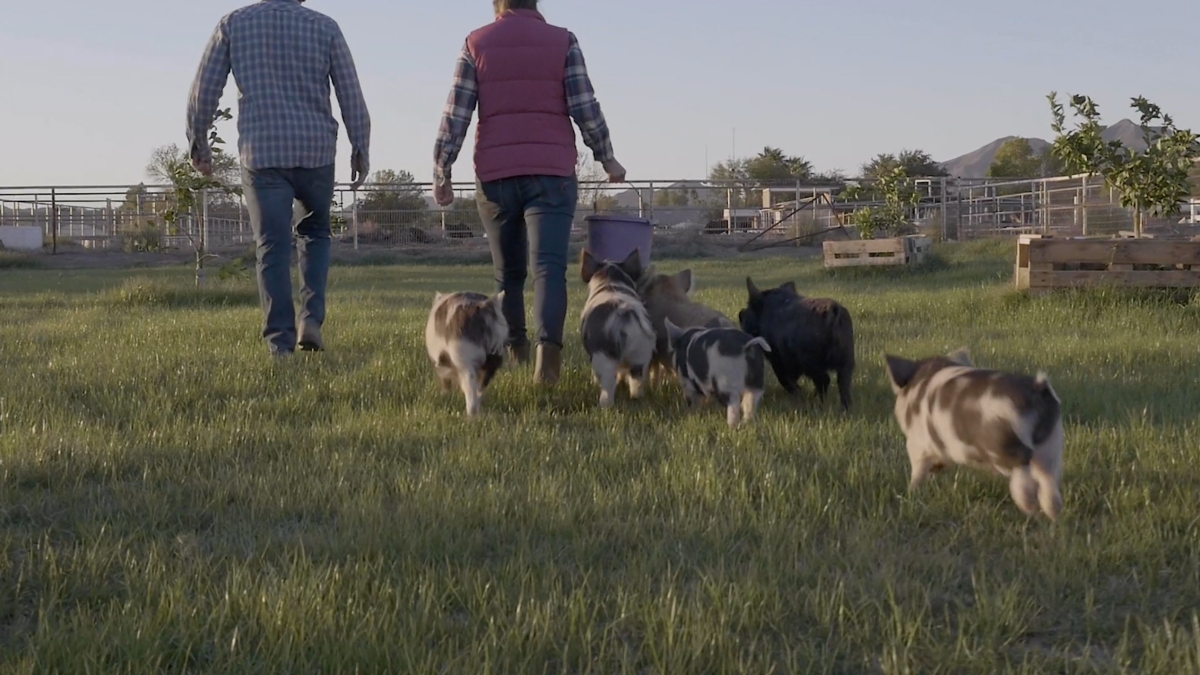Imagine feeding your pigs, tending your cabbage and collecting your eggs — all before heading to class.
Arizona State University Associate Professor Frank Infurna does just that every morning before his lectures when helping his wife, Lauren, at their Queen Creek farm, La Campagna Homestead. Infurna's work in the Department of Psychology focuses on resiliency and the mental health of adults as they face developmental challenges and other life stressors.
His current research hopes to understand whether our sense of gratitude grows through practicing it on a day-to-day basis — like he and Lauren do on their farm — or if it grows as a result of serious life events such as the death of a loved one, a loss of a job or other stressful life events.
Video by Deanna Dent/ASU Now
ASU Now checked in with Infurna during Thanksgiving Week to find out more about gratitude and thankfulness.
Question: What is gratitude?
Answer: Gratitude broadly refers to feelings of appreciation and being grateful in life. It consists of two components: felt gratitude and appreciated gratitude. Felt gratitude refers to feelings of being appreciated by others, such as a spouse, family members or friends (i.e., knowing that your behaviors are appreciated by others). Appreciated gratitude refers to behaviors that show gratitude toward another individual. Higher levels of gratitude are shown to be linked to well-being. In a current research study, we are examining the extent to which adversity leads to changes in gratitude.
Q: Do we need gratitude, or do we just want it?
A: I think that gratitude contributes to individuals' feelings of belonging with others and overall well-being. Humans are social creatures, and I think gratitude permits for us to be part of a community and contributes strongly to our well-being.
Q: Why do people sometimes have a complicated relationship with gratitude?
A: Gratitude can oftentimes be complicated … when individuals may be unsure of the motivation behind someone expressing gratitude toward them. It can be difficult to discern whether the acts of gratitude are genuine or have an alternative motive.
Q: Anything else we should know about gratitude before we head into Thanksgiving and the holiday season?
A: Holidays such as Thanksgiving provide individuals an opportunity to reflect upon the year and think of things they are grateful for happening and future events they are grateful for to be happening. … However, it doesn't always have to be holidays that initiate feelings of gratitude; if done more frequently, possibly every week or every month, this can also lead to the well-being benefits of gratitude.
Additional videography: Jamie Ell/ASU Now
More Science and technology

ASU-led space telescope is ready to fly
The Star Planet Activity Research CubeSat, or SPARCS, a small space telescope that will monitor the flares and sunspot activity of low-mass stars, has now passed its pre-shipment review by NASA.…

ASU at the heart of the state's revitalized microelectronics industry
A stronger local economy, more reliable technology, and a future where our computers and devices do the impossible: that’s the transformation ASU is driving through its microelectronics research…

Breakthrough copper alloy achieves unprecedented high-temperature performance
A team of researchers from Arizona State University, the U.S. Army Research Laboratory, Lehigh University and Louisiana State University has developed a groundbreaking high-temperature copper alloy…


